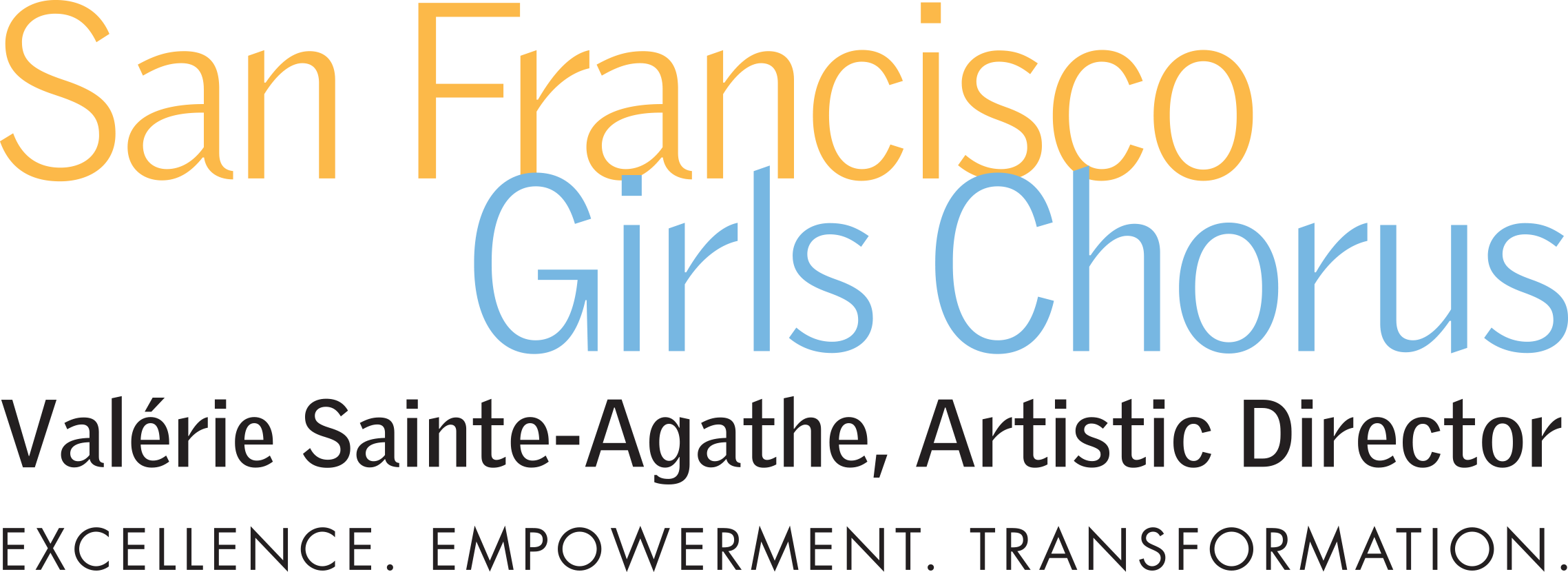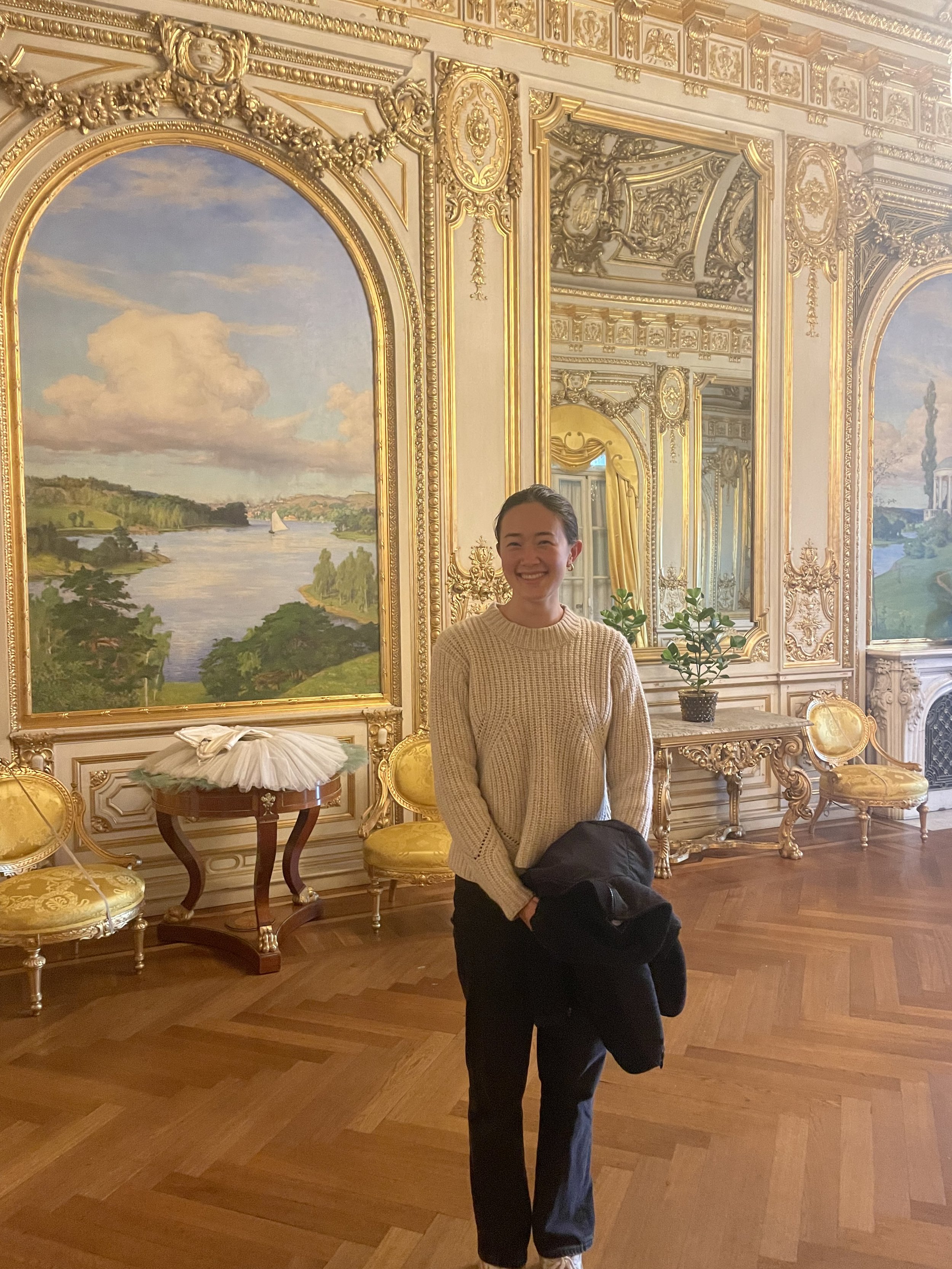Postcard From SFGC Alum and Watson Fellow Ellie Murphy-Weise
In SFGC’s Postcard series, our guest artists, collaborators, and faculty take us behind the scenes and share an intimate look into their thoughts about music, life, and art-making.
Ellie Murphy-Weise, SFGC Alum and Watson Fellow
This postcard features SFGC Alum and Watson Fellow Ellie Murphy-Weise. Ellie will be taking us along as she travels the world through her fellowship! Get to know Ellie and follow her journey.
From Ellie: "I am a 2017 laureate of SFGC and a Watson Fellow. I joined SFGC at age 10 and spent six years in the Chorus (two in the Premier Ensemble) in addition to recording the My Outstretched Hand album the year after I laureated, and working at camp. I graduated from Wellesley College this past May, where I double majored in music and international relations, and I was awarded a Thomas J. Watson Fellowship to study contemporary opera scenes around the world, heavily inspired by my exposure to new music while in SFGC, and my experience working on Opera Parallèle’s production of Dead Man Walking in Level IV. The fellowship funds a year of independent research and travel outside the United States, and I will travel to nine countries to observe rehearsals of new operas, interview artistic directors and composers, and learn methods of making the art form more accessible to modern audiences."
Tell us about this fellowship! What will you be focusing on?
I have a Watson Fellowship, awarded to graduating seniors from small colleges in the US to explore an independent project outside the US of their choosing! My topic is “Reimagining Modern Opera,” and I’m looking to explore the ways in which people around the world are innovating in opera through contemporary techniques, new music, and drawing on the musical vernacular of their audiences.
Where will you go? What will you do and see? Give us a sneak peek of what’s to come!
My current, (very flexible) itinerary includes Stockholm, Lucerne, Berlin, Seoul, Taipei, Istanbul, Cape Town, London, Vienna, Aix-en-Provence, and Sofia. I’ve carefully selected each place based on an opera production or festival I’m interested in, a particularly vibrant traditional music scene, or a hotbed for the melding of the two. I plan to observe rehearsals of new operas, attend performances of contemporary music, study traditional vocal techniques, and interview artistic directors and composers about future directions for the art form. I’m also attending an academic conference in Switzerland with musicologists from around the world and meeting up with Nicole Paiement, director of Opera Parallèle, for a production in Austria next year.
How did SFGC prepare you for this opportunity?
The professionalism and musicality I learned from SFGC has taken me so far with my work this year— the music world is incredibly small, and I’ve been able to enter spaces I never dreamed of being in, like the highest echelons of the Royal Swedish Opera, through connections from SFGC. I recently observed rehearsals of two world-renowned professional choirs, and the level of difficulty we encountered with commissions in the Premier Ensemble made each piece feel really accessible to me— SFGC laureates can feel perfectly at home in the highest levels of choral music around the world!
What lessons from SFGC will you be taking with you?
Back to professionalism, I think that the ways I learned to move around a professional musical environment in SFGC are something I will take with me this year. After experiencing day-long rehearsals, tours, recording projects, and the backstage areas of productions around the Bay Area, I feel completely comfortable in the rehearsal process of European opera companies.
What would you say to a young singer who is considering joining SFGC?
SFGC shaped me into the musician I am today through experiences I wouldn’t have even thought possible— performing in multiple operas as a middle schooler, being exposed to music from the most interesting composers today, and the incredible training to grasp difficult music and navigate professional music networks.
What would you say to a singer midway through their journey with SFGC?
It is the most precious thing in the world to make music with a community as close-knit and supportive as SFGC. Many professional musicians come together only for a few rehearsals before a performance, and it’s incredibly rare to find a chorus that performs at a high level and also has genuine connections to each other— you can hear the difference.
What does being an SFGC alum mean to you?
Being an SFGC alum is amazing! I cherished my time in SFGC, but it is also so much fun to come back to camp as a counselor and see what my friends from SFGC are up to in the years after. I even met another alum, mezzo soprano Maren Montalbano, at Baltic Sea Festival rehearsals in Stockholm, and there was an immediate connection and camaraderie between us despite being with the organization at different times.
What is your relationship with music like?
I studied International Relations and History in college before adding my music major, and I regret treating it like an afterthought— the music world is so exciting yet familiar to me, and I am obsessed with analyzing what exactly about a piece draws me to it and elicits certain emotions. I’m still figuring out the balance I want between the more academic, theoretical side of music and the performance side, but I know for certain I want to pursue it as long as possible.
What do you love about choral singing?
I love the way we breathe together and feel a piece together, as well as the sort of single minded focus you can have in performance when when the conductor is perfectly connected with the chorus. My absolute favorite part, however, is the joy in the rehearsal process, of correctly sight reading a difficult part, and the absolute chaos and fun of learning music with other people.
How do you balance your relationships with solo singing and choral singing?
I moved away from choral singing after I laureated to study solo voice more intensely, at the Boston University Tanglewood Institute and then for four years in college. I really enjoy how detail-oriented the work is, and the ability to do repertoire that’s really interesting to me— I loved writing out the harmonic analysis of the accompaninent coupled with my vocal lines to understand pieces from the inside out. While I spent most of my time in college in voice lessons rather than chorus, I found the camaraderie I was missing in my a cappella group. It is difficult to find a choral environment as extraordinary and accomplished as SFGC, so I felt like my combination worked as a replacement.
What are you most excited about with this fellowship?
My favorite memories so far have been interacting with musicians after performances, hearing about their professional and personal lives and reveling in what we have in common! I love music and I love people and the people who do music are so lovely and generous, so I can’t wait to continue meeting them.
A snapshot from Ellie's time in Stockholm at the Royal Swedish Opera.


